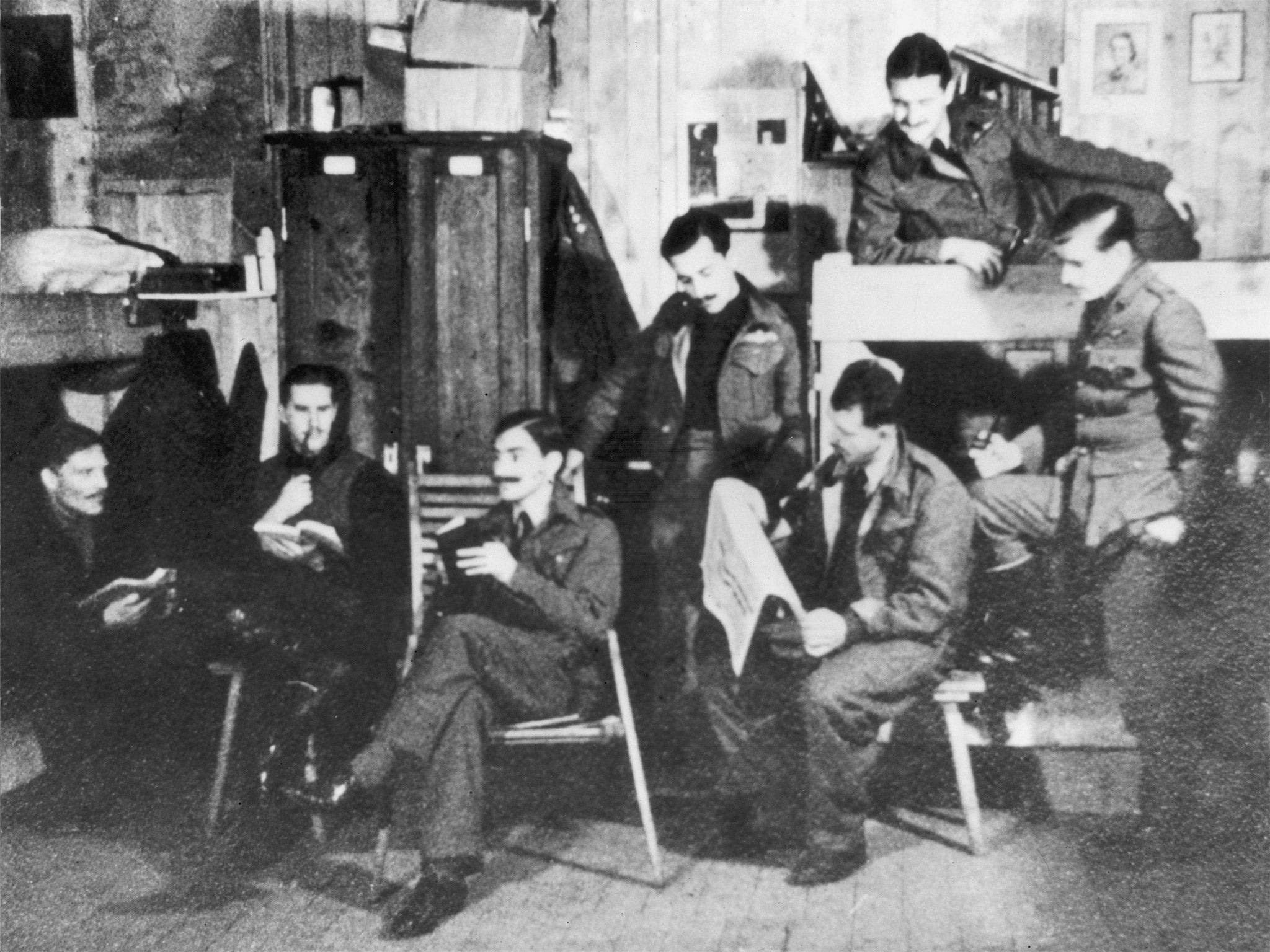'Great Escape' team member Bertram James refused compensation by British government
Officials insisted Lieutenant Bertram Arthur James's detention was 'in no way comparable' to being held in a death camp

Your support helps us to tell the story
From reproductive rights to climate change to Big Tech, The Independent is on the ground when the story is developing. Whether it's investigating the financials of Elon Musk's pro-Trump PAC or producing our latest documentary, 'The A Word', which shines a light on the American women fighting for reproductive rights, we know how important it is to parse out the facts from the messaging.
At such a critical moment in US history, we need reporters on the ground. Your donation allows us to keep sending journalists to speak to both sides of the story.
The Independent is trusted by Americans across the entire political spectrum. And unlike many other quality news outlets, we choose not to lock Americans out of our reporting and analysis with paywalls. We believe quality journalism should be available to everyone, paid for by those who can afford it.
Your support makes all the difference.An original member of the legendary “Great Escape” breakout from a German prisoner of war camp was repeatedly turned down for compensation despite being held for months in solitary confinement at risk of execution, newly released papers have revealed.
Lieutenant Bertram Arthur James was one of the celebrated 76 Allied airmen who escaped Stalag Luft III down a 100-metre tunnel in 1944, only to be recaptured some 18 hours later as he tried to catch a train to freedom.
Fifty of the recaptured servicemen who fled through a tunnel dug beneath the camp in modern-day Germany were shot dead on the orders of Adolf Hitler. Only three men made it home in the escape, famously retold in the 1963 movie starring Steve McQueen.
A year after the film’s release marked the start of a less well-publicised battle for Lt ‘Jimmy’ James to secure a slice of the £1m compensation on offer for UK victims of Nazi persecution.
Papers released today by The National Archives show how he only secured £1,192, the equivalent of nearly £20,000 today, after a parliamentary inquiry and embarrassment for the Foreign Office after the media picked up the story.
James, who died in 2008 aged 92, was a celebrated serial attempted escaper, who made more than 12 efforts to flee after he was shot down over the Netherlands in his Wellington bomber in 1940 and taken prisoner by the Germans.
The newly-released papers reveal his letters applying for compensation after the Government introduced a £1m compensation scheme in 1964 funded by West Germany. However, its terms were narrowly drawn and only one quarter of those who applied received money.
In his letters to the Foreign Office, James detailed how he was held in an outlying block at Sachsenhausen concentration camp after The Great Escape. He spent five months in solitary confinement after another attempted tunnel escape from there in 1944, according to his letter of application.
“During most of this time I was under threat of execution which was, to say the least, somewhat disturbing,” Mr James, who was by then a visa officer attached to the British embassy in Prague, wrote with diplomatic service detachment.
He said conditions in the outlying block were not as harsh as in the main camp, where he wrote that 1,500 people died in the winter of 1943-44, a point picked up by the civil servants vetting claims.
A Foreign Office official wrote back in 1965 turning down his request for compensation, saying his conditions of detention were “were in no way comparable” to the threat of “extermination by starvation, exposure, overwork or by the gas chambers etc”.
The official added: “This is not to belittle the hardship you underwent in contravention of the Geneva Convention.”
The Daily Express later wrote that he had protested about the rejection of his claim, sparking a Foreign Office damage limitation exercise between London and Prague. Reporters attending a diplomatic function were to be told a story of his protest was “without foundation”.
But Mr James still unsuccessfully appealed the decision in late 1965 when he wrote in graphic terms of his treatment by German interrogators following his capture following the Great Escape and the shooting of his escape partner, a Greek fighter pilot. He said he later spent a night at Dachau when it was clear that executions were taking place.
At the bottom of his account, a pencil-written note said: “There must have been thousands of cases of such treatment”.
He was not paid until more than two years later when the Foreign Secretary agreed to hand compensation for victims of Sachsenhausen following a review. His was one of 1,015 awards from more than 4,000 applications.
Join our commenting forum
Join thought-provoking conversations, follow other Independent readers and see their replies
Comments